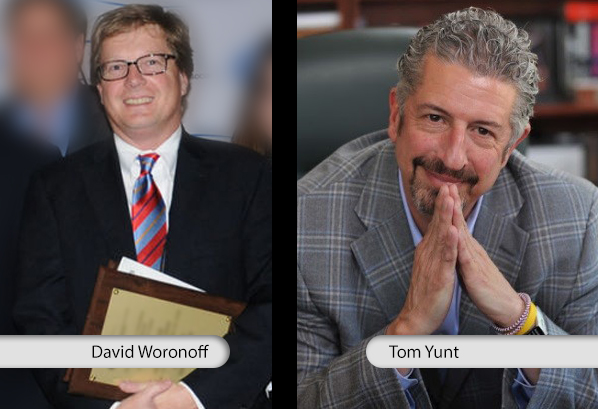Customer satisfaction is
key in digital marketing
By Alison Berstein
Bulletin Correspondent
“People know what they’re looking for; they just don’t know where to get it from.”
Robert Scanlon, digital director of New England Newspapers Inc., based in Pittsfield, Mass., and publisher of The Berkshire Eagle of Pittsfield and its sister publications, discussed that predicament at the New England Newspaper Conference Oct. 12.
Scanlon was one of the panelists at the discussion, titled “Digital marketing services.”
To best reach customers, newspapers should take advantage of all of the marketing tools available to them, the panelists said.
“We’ve really figured out our process,” Scanlon said. “Now we’re in a really good spot where we have digital sellers, multimedia reps, an in-house operation team that helps fulfillment.”
“That’s pretty much the name of the game — making sure the customer is happy with the campaigns,” he said.
The panel was one of three roundtable sessions that kicked off the conference, held at the Crowne Plaza hotel in Natick, Mass.
Tim Brady, advertising director of the Concord (N.H.) Monitor, moderated the session.
“Digital space is a space that we want to challenge,” Brady said. “Everybody has different models, but that can change in minutes or seconds.”
For a newspaper to succeed, it needs to harness today’s panoply of digital assets – especially mobile, the panelists said.
“If you’re not mobile-friendly, you’re getting penalized by Google and you’re not giving your customers a good experience,” said panelist Daryl Hively, founder of digital agency Guarantee Digital, based in Hartland, Wis. “You’re just setting yourself up for a conversation 30 days from now where they say it doesn’t work. It doesn’t work because you gave your customer a crummy experience.”
Added Scanlon: “It’s like having a boarded-up store.”
Newspapers should pay close attention to the need of customers to give them a positive experience, panelist Shawn Palmer said.
“Your best new customers are your current customers,” said Palmer, senior vice president and chief revenue officer of Record-Journal Media Group, based in Meriden, Conn.
“Be the smartest and most educated, with the most options for them. We start with what the customer needs,” he said.
A publication being locally accessible is a huge step in learning and meeting customer needs, Palmer added.
“We’re local and we’re in our markets every day; that’s our advantage,” he said. “We have that credibility. There’s a lot of value to what we do, small weekly or a larger daily.”
New England lends itself to ample opportunities for a publication to build local connections with its clientele, the panelists said.
“This is New England. This is very small; people are very traditional,” Palmer said.
In 2016, Record-Journal Media Group discussed and began conducting more in-house operations, which Palmer found to be “extremely successful.”
“That local connection really helped us,” he said. “Our customer could sit down with the designer and talk about the designs.”
Brady sees potential in digital services as a tool for newspapers.
“There’s a number of opportunities for everybody, and you’re all engaging in some fashion,” he said.
Brady surveyed the audience members to see who worked for a digital-only publication and who worked for a publication that is a mix of traditional and digital.
All of the audience members answered that they worked for publications that are combination traditional and digital.
Hively said he was pleased with such a digitally-minded turnout.
“Be the backstop for newspapers who want to get into digital services,” he said.
A newspaper does not need a full team of digital experts, as long as a small margin of that team is familiar with digital skills, Hively said.
“You don’t have to hire 10 people to make this work,” he said.
“A clear indictor of who’s going to do really well is there’s at least one person who’s responsible and who understands digital,” he said. “If you’re just going to put this as another product for the print rep to sell, you’re going to get very limited results.”
Hively thinks that embracing digital tools of the trade will give publications a bright future.
“We’re looking for big things in ’18,” he said.

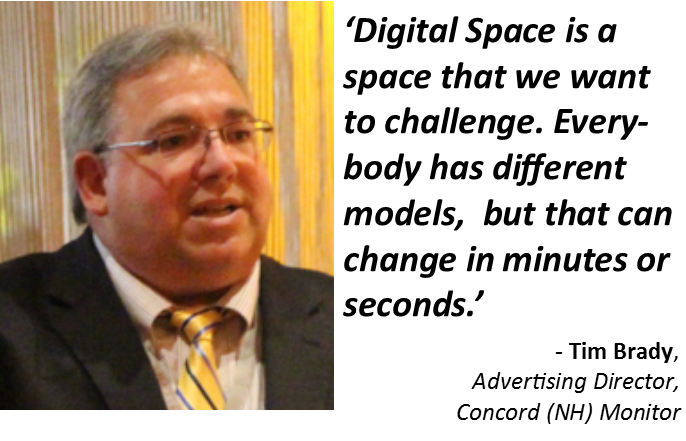





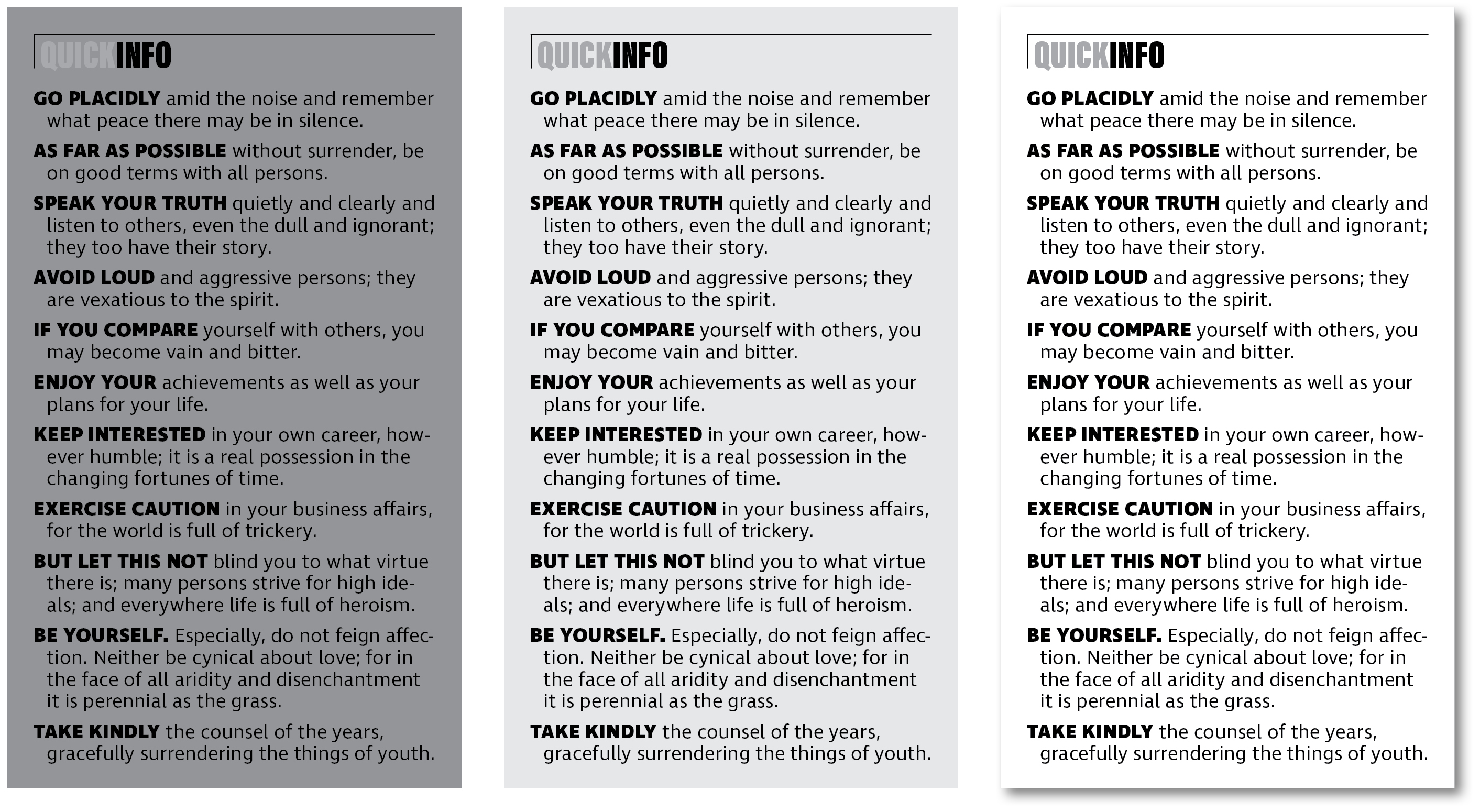
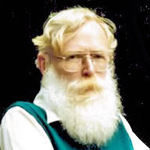 David Norman Walsh
David Norman Walsh Lois Marston Duquette
Lois Marston Duquette  Calhoun J. ‘Cal’ Killeen, Jr.
Calhoun J. ‘Cal’ Killeen, Jr.  Michael P. Saucier
Michael P. Saucier Rosemary A. Hanson
Rosemary A. Hanson
 Nancy Hess Spencer
Nancy Hess Spencer Virginia Campbell Downs
Virginia Campbell Downs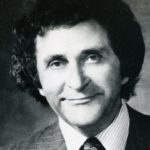 Ray Barron
Ray Barron Charles Turek Robinson
Charles Turek Robinson  Patricia Mulford Ahrens
Patricia Mulford Ahrens Natalie Wallace Murphy
Natalie Wallace Murphy 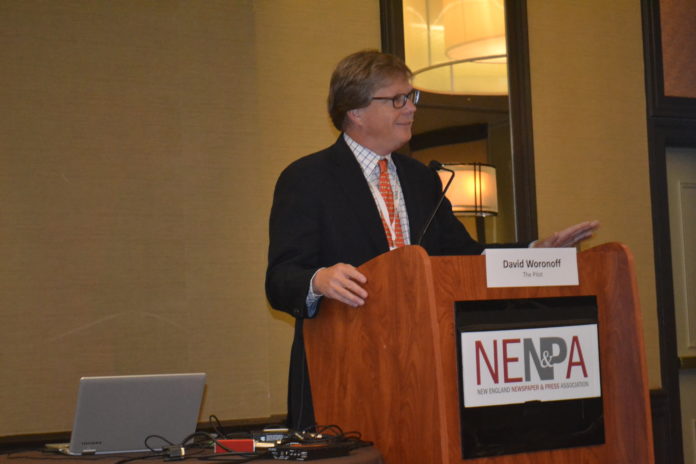
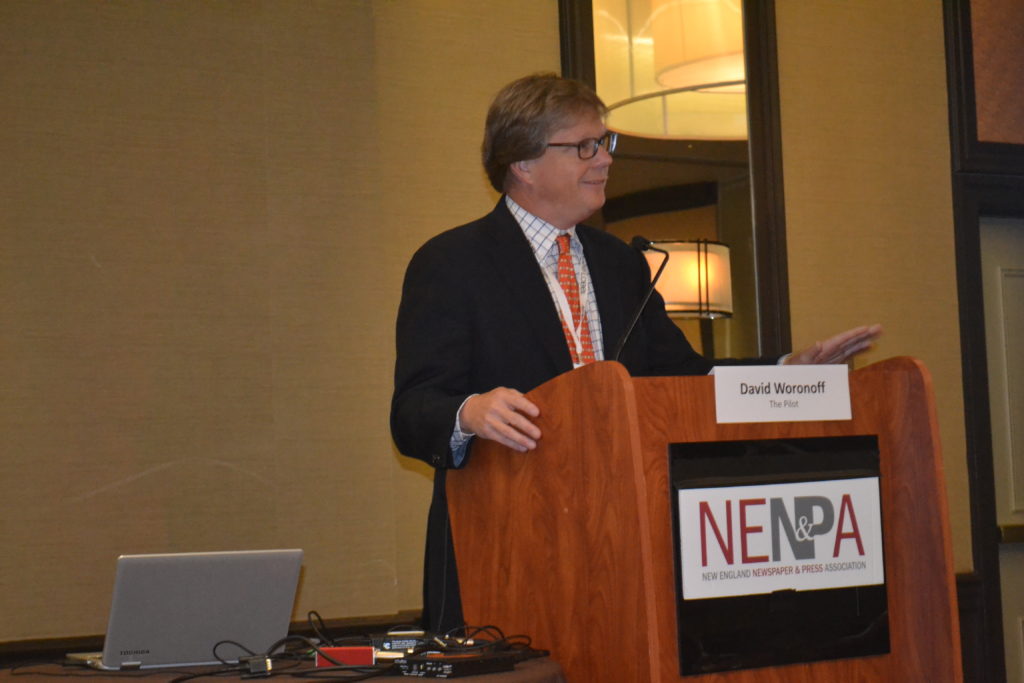


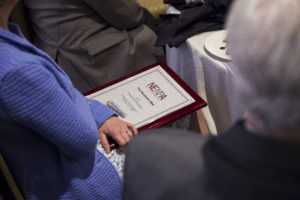
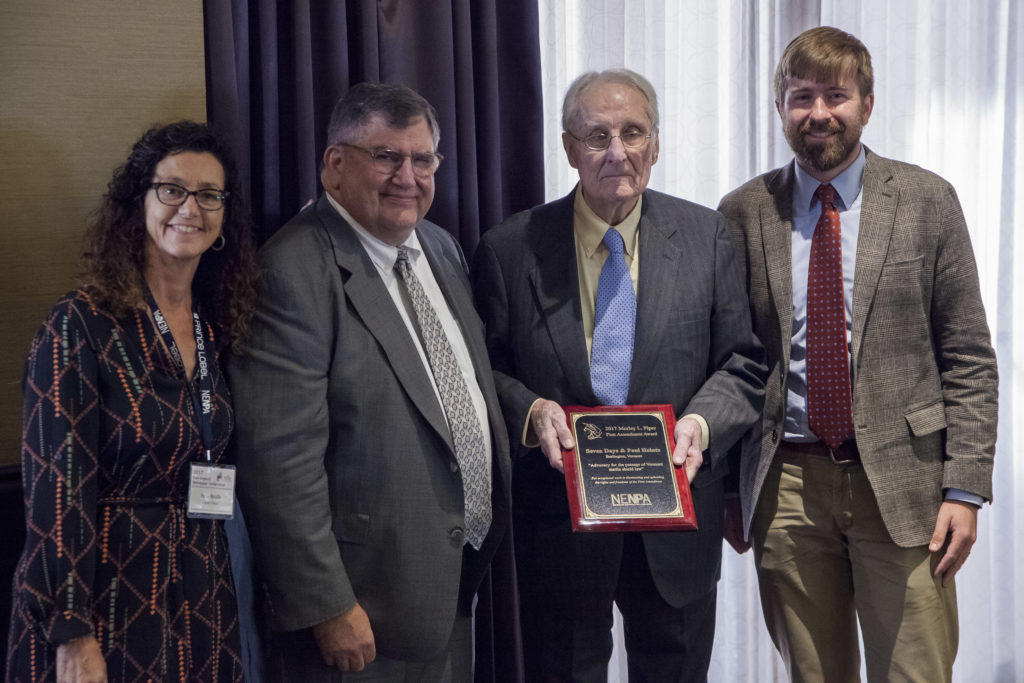
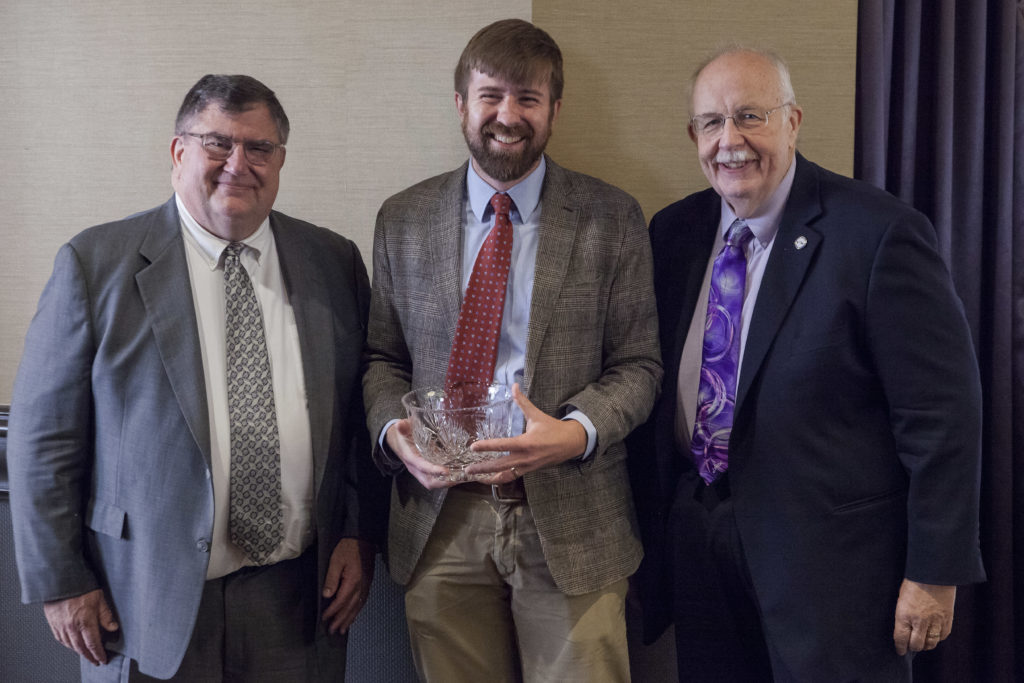
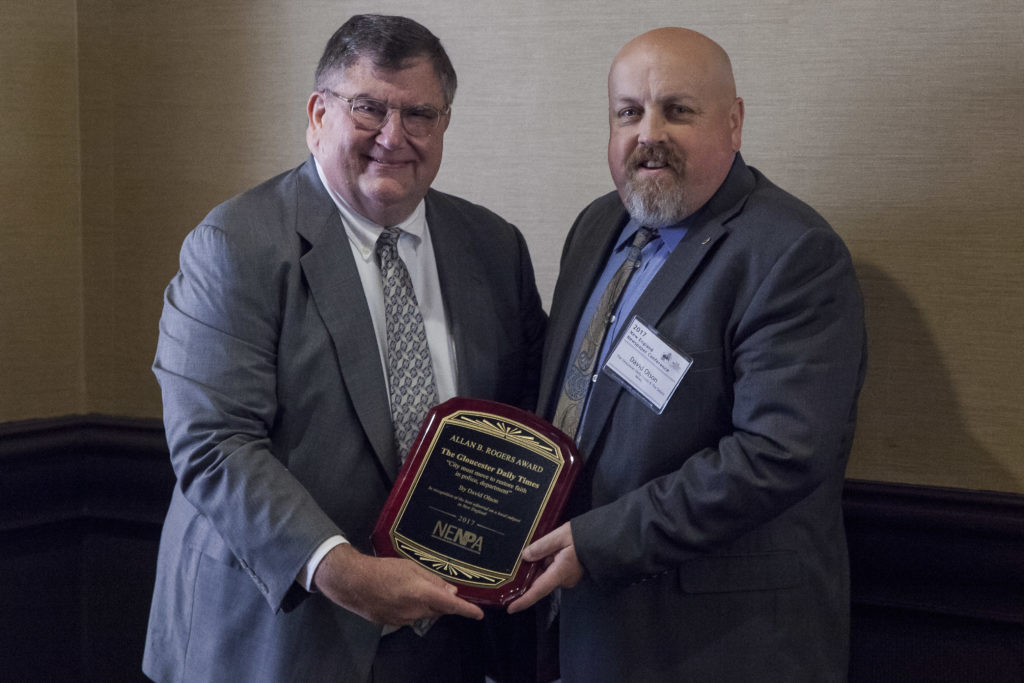
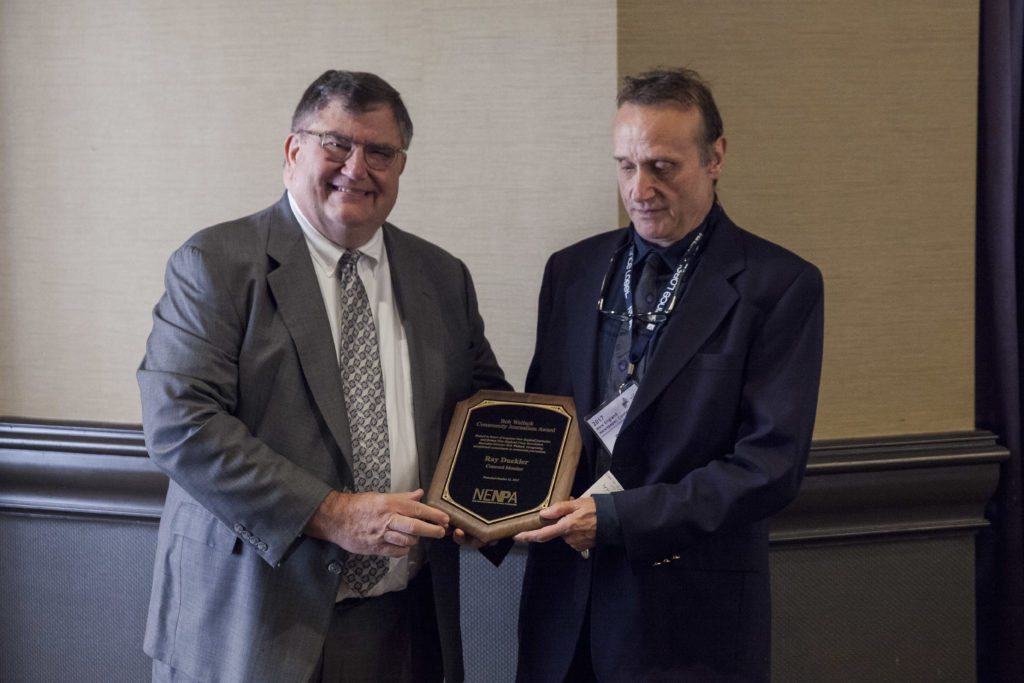
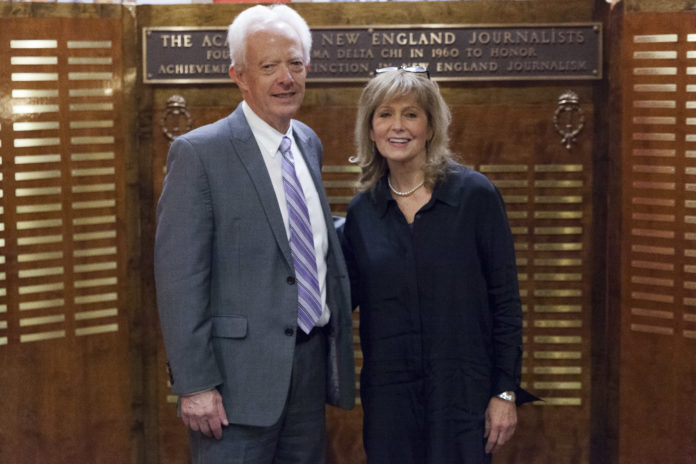
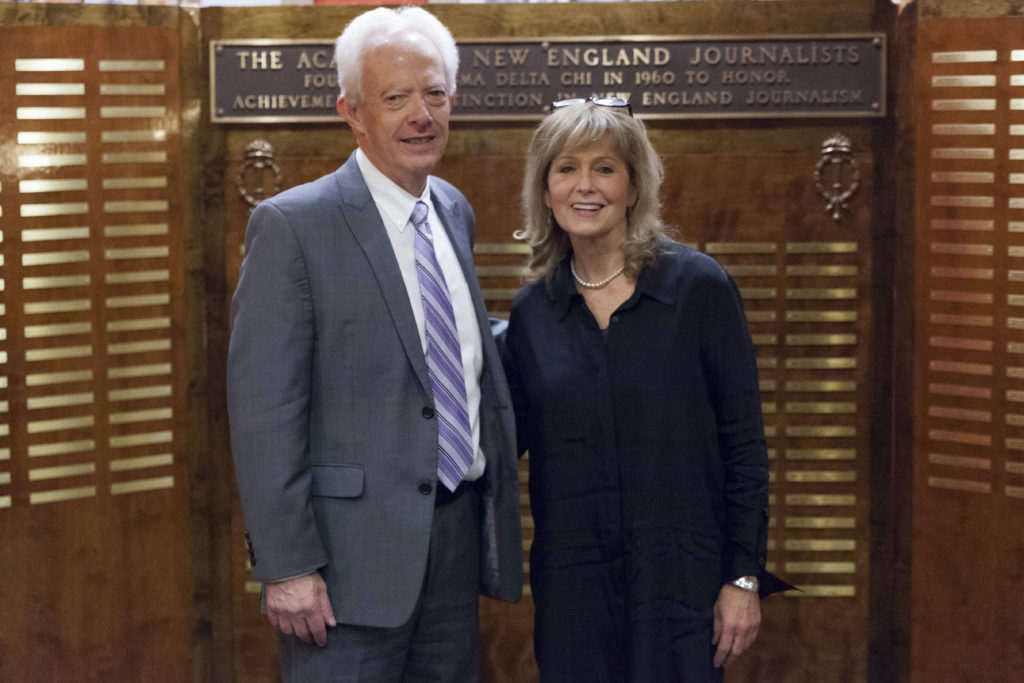
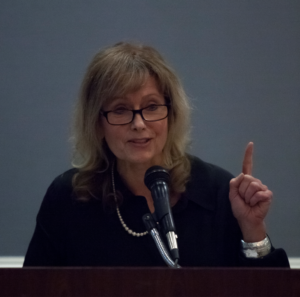
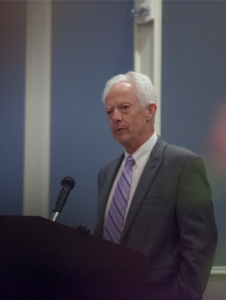
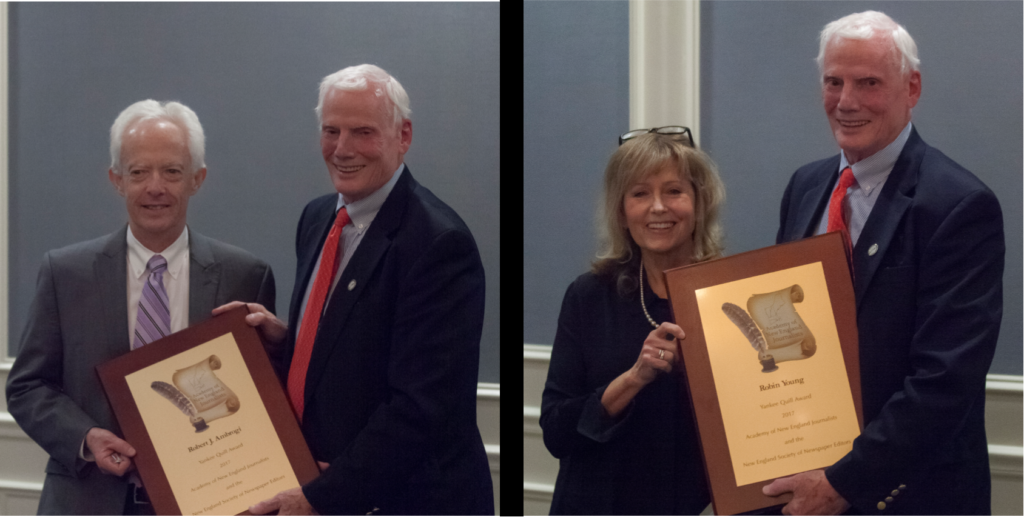
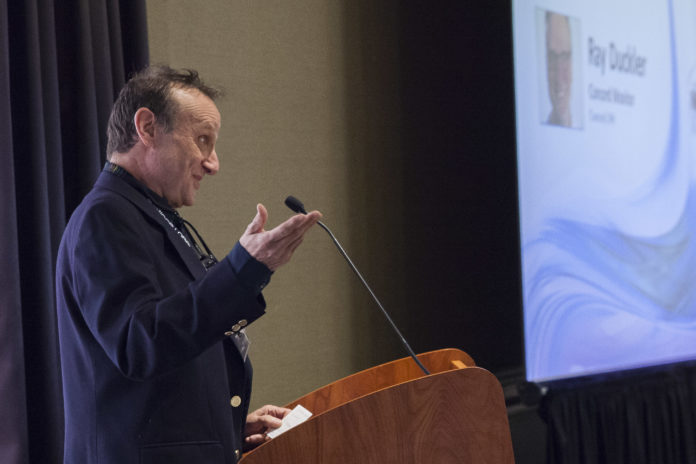
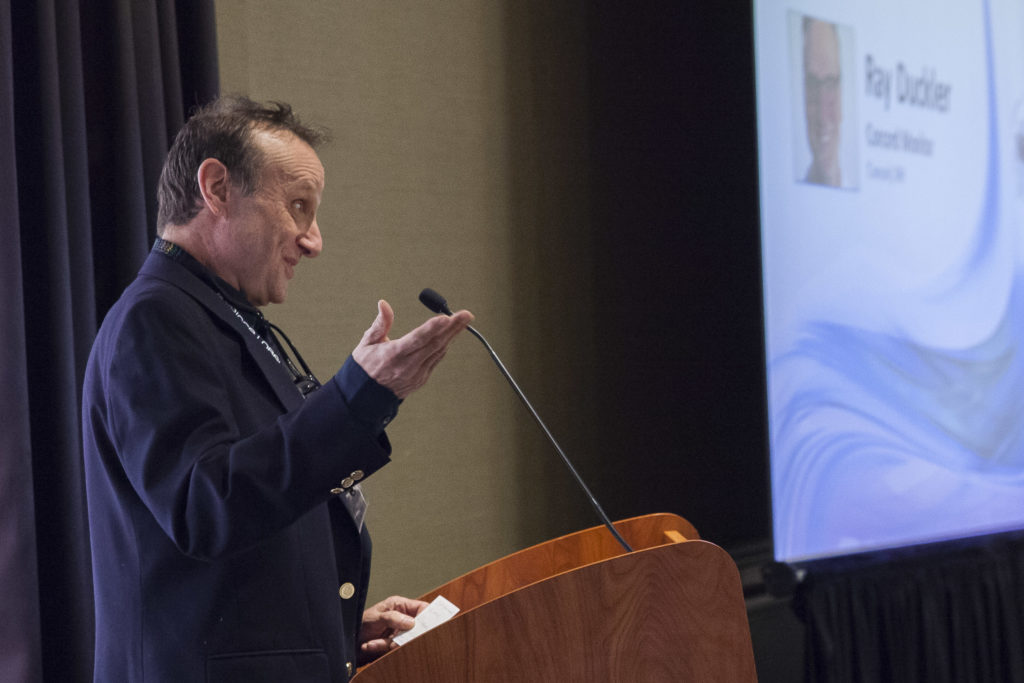
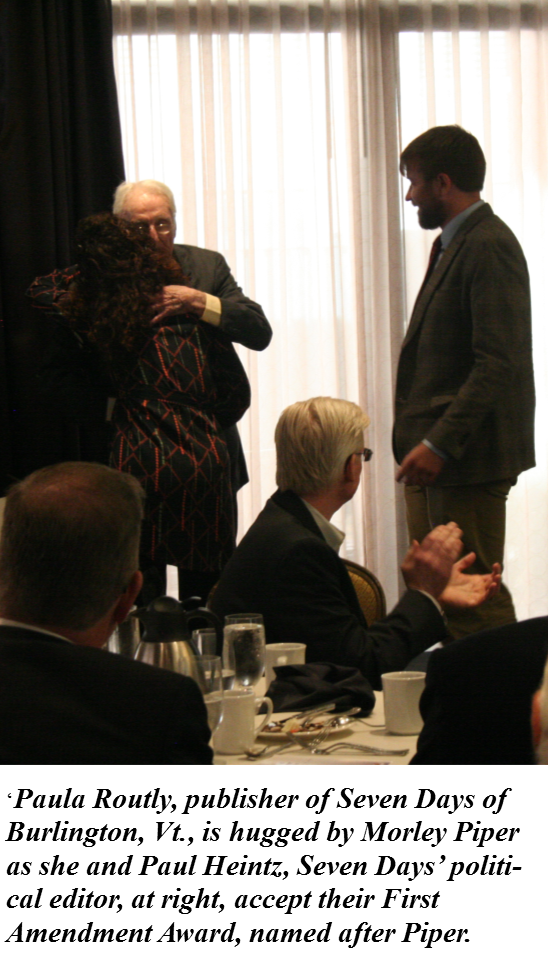
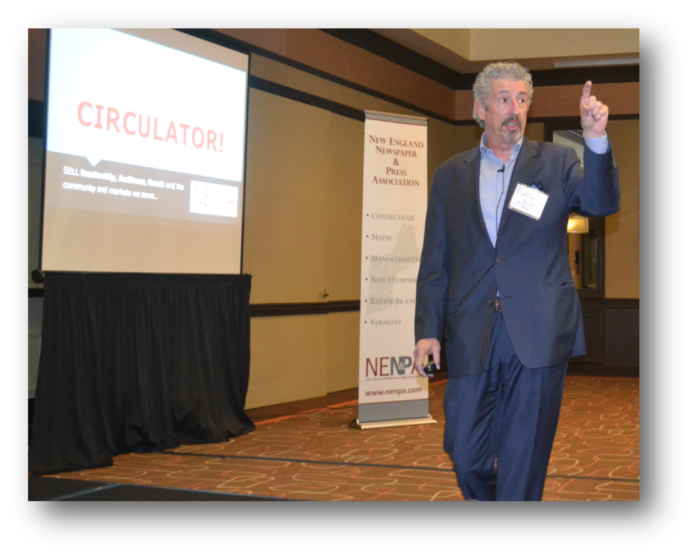
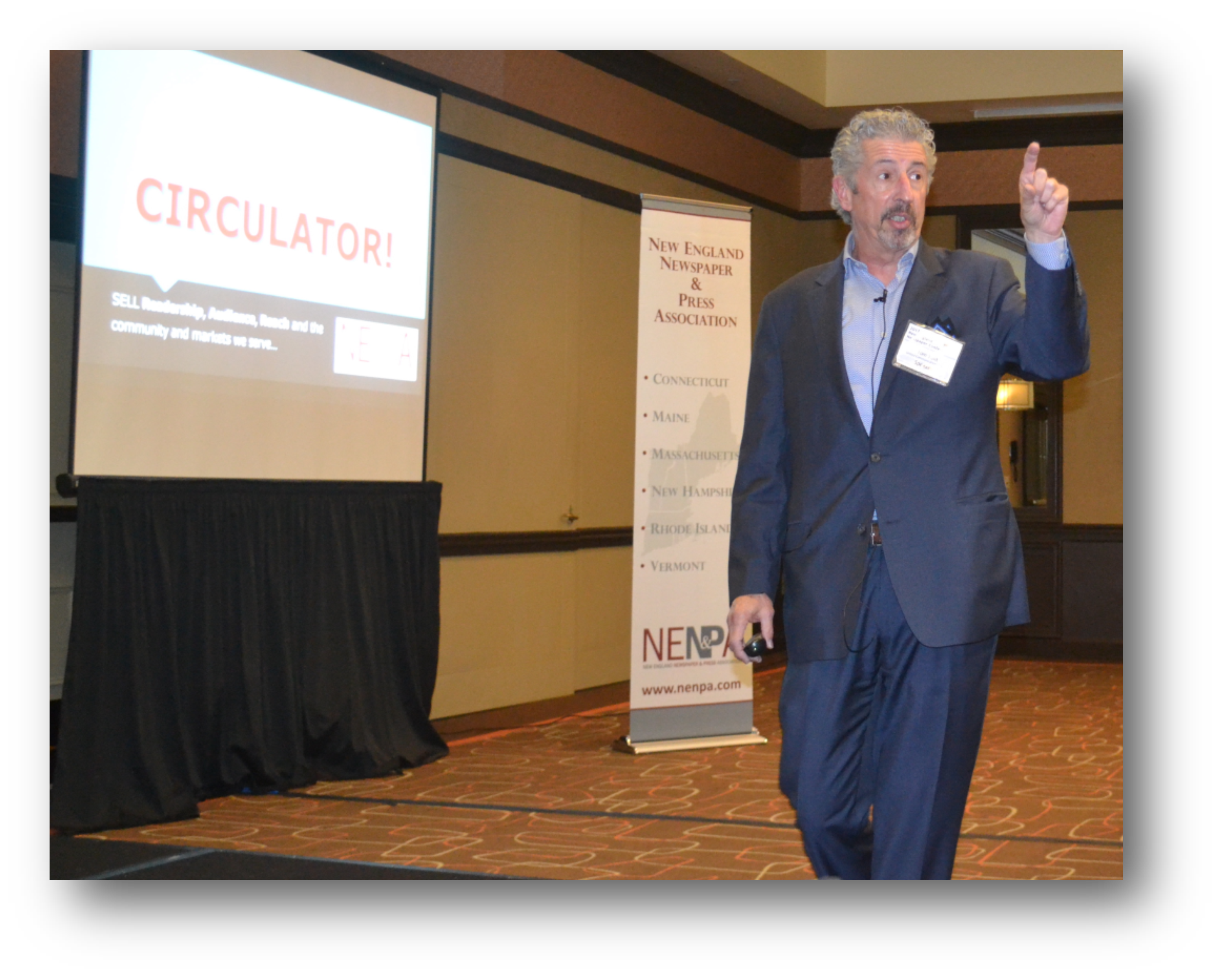
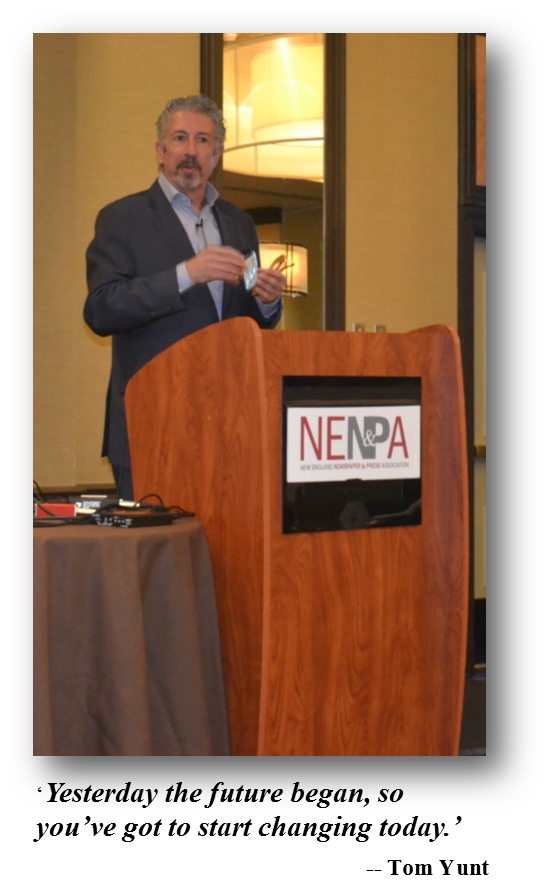
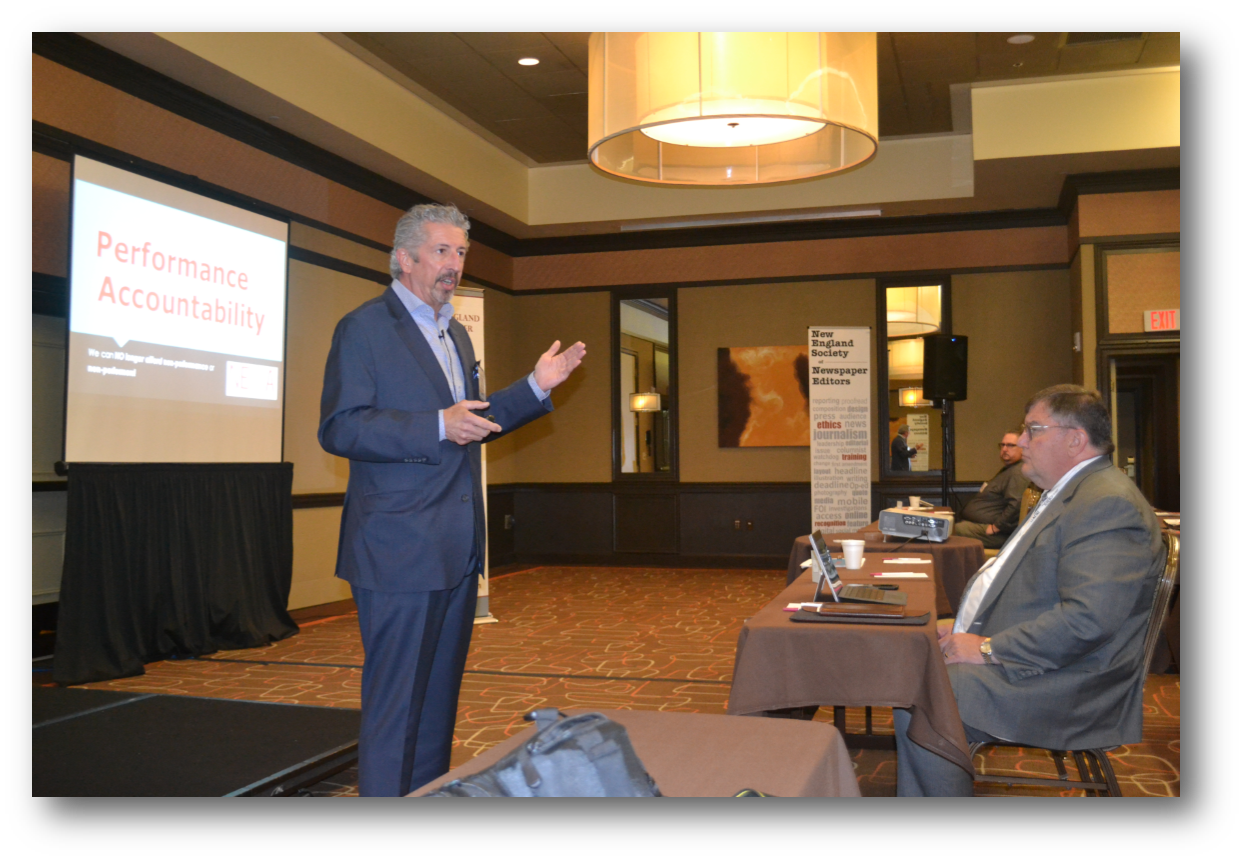 ‘Be unique. Local, local, local. Sell differently than your competitors. Last but not least, you have to absolutely love your customers.’ – Tom Yunt
‘Be unique. Local, local, local. Sell differently than your competitors. Last but not least, you have to absolutely love your customers.’ – Tom Yunt